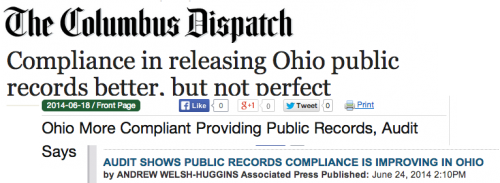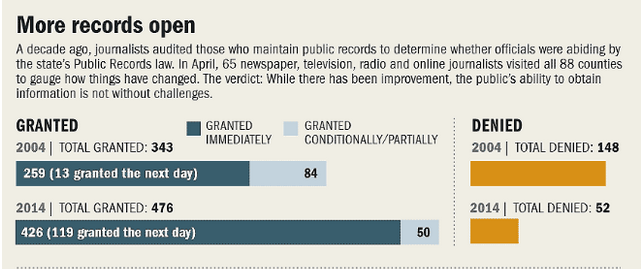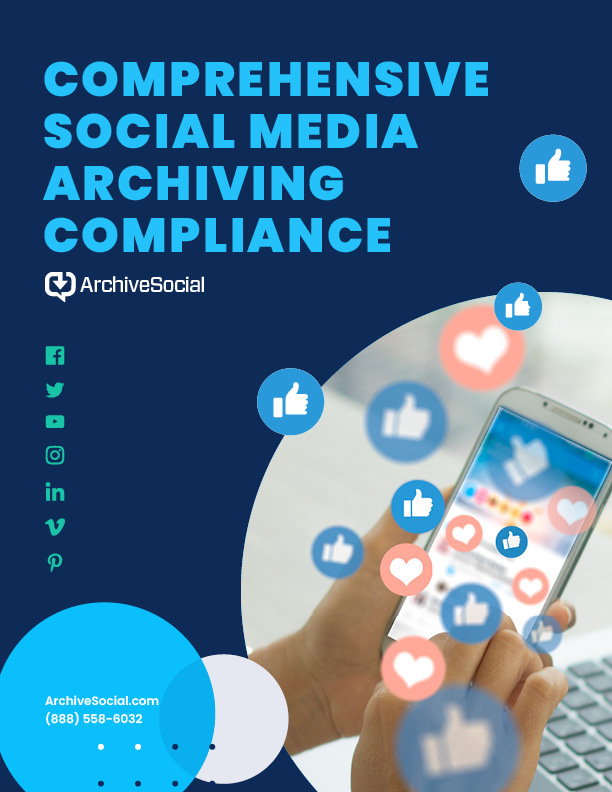
Ohio is up to speed on the past
In mid-June, journalists submitted a series of public records requests to state agencies in order to see if the state’s compliance had improved since the last audit in 2004. The good news is, the agencies tested showed significant improvement over the last decade. They readily produced all manner of traditional records from restaurant inspections to expense reports, and for the most part, they were prompt in replying to the requests.

Source: The Columbia Dispatch
But what about the future?
It’s great that Ohio has made such progress in its open government practices, but we can’t help but notice that something significant was missing from the audit — records of social media. The Ohio Public Records Act (“Sunshine Law”) defines records as, “any document, device, or item, regardless of physical form or characteristic, including an electronic record.”
With more and more municipalities, police departments, libraries, and schools employing social media tools such as Facebook and Twitter to reach their constituents, a huge amount of information is being generated every day that qualifies as public records. So why wasn’t social media part of the conversation?
Ohio’s Forward Thinkers
There are those in Ohio who are out in front of this issue and deserve recognition for their efforts. The Ohio Electronic Records Committee, for example, understands that social media is an important aspect of modern government communications and has issued official guidelines to help agencies plan and manage the records generated in social media.
Cities such as Cleveland have also acknowledged the public records implications of social media and have included language about it in their social media policies:
b. Any content maintained in a social media format which is related to City business, including but not limited to a list of subscribers, posted comments, and information submitted for posting, may be a public record subject to public disclosure.
Source: City of Cleveland Social Media Policy
Learning from the past and looking ahead to 2024
Just as email eclipsed the inter-office memo, tweets are replacing phone trees and Facebook posts are getting the scoop on the eleven o’clock news. It’s important that we start taking these new forms of communications seriously before we repeat the hard lessons of the past. Back in 2000, many people in government hadn’t given much thought to the significance of emails as records — an oversight that proved costly. When White House Counsel Alberto Gonzales determined in 2001 that “[a]ny e-mail relating to official business … qualifies as a Presidential record,” it set off nearly nine years of labor, lawsuits, and headaches before a reliable email archiving system was in place.
Requests for social media records are already happening, even if they were left out of the Ohio audit (this one was even made on social media). The technology exists to help public agencies get out ahead of issue, it just needs to be implemented. Many federal, state and local agencies have already taken steps to prepare themselves to respond to social media records requests. When you receive your first request, will you be ready?
For more information, visit the resources on our Social Media Records in Ohio page.

